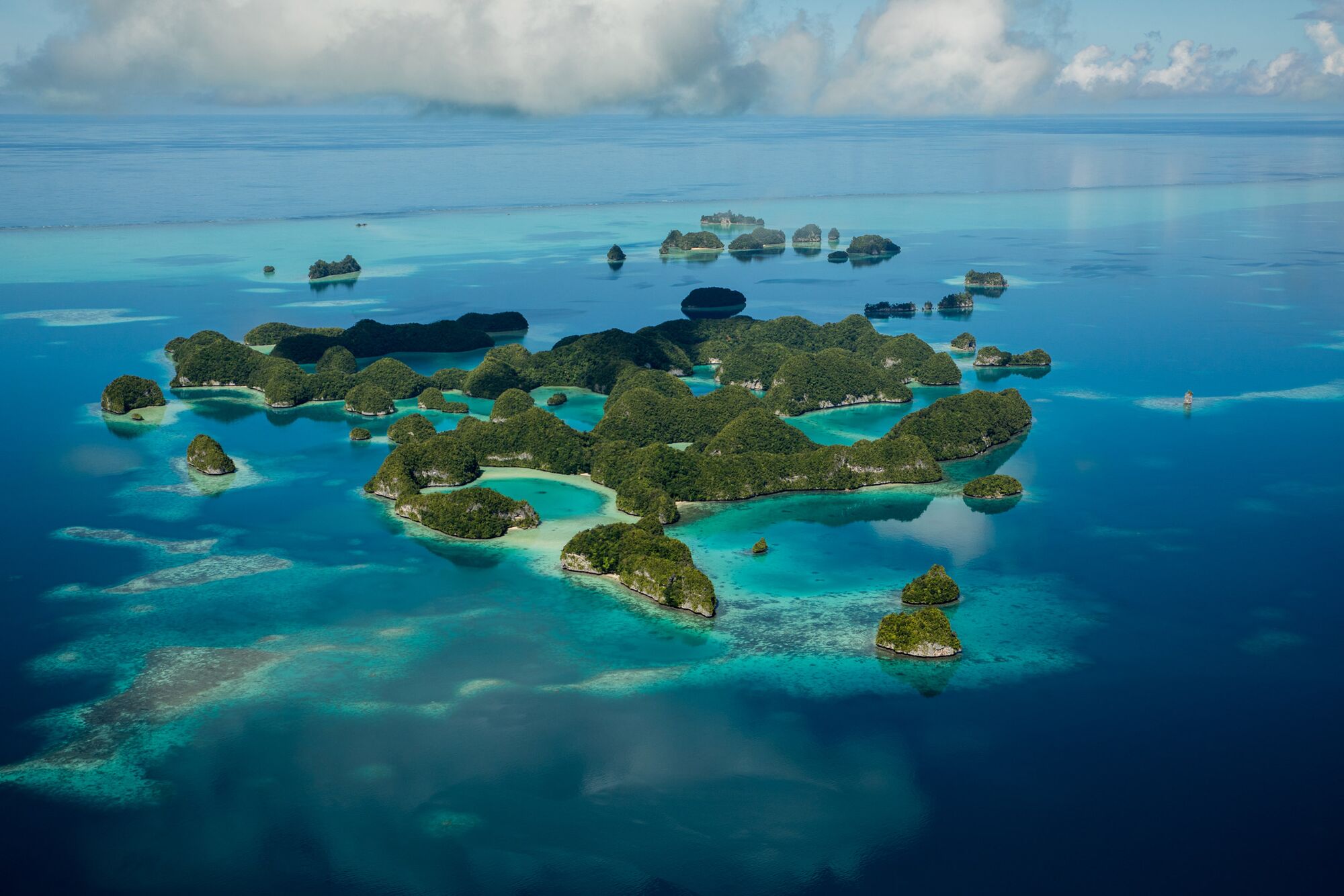
The Nature Conservancy’s role in the government move to reopen an ocean reserve to industrial fishing highlights the global debate over how to aid Pacific island nations imperiled by climate change.
Every coastal nation controls the 244 miles of the ocean that extends from its shores. These “exclusive economic zones” give Pacific island states domain over huge swaths of the sea, with territorial waters that radiate in all directions from far-flung archipelagoes. Even as these countries face civilization-ending threats from rising tides, they’ve emerged as linchpins in protecting a biodiverse-rich region of the ocean from climate change, overfishing and pollution.
Some of the world’s largest marine sanctuaries come from the tiniest of countries. In 2015, Palau moved to prohibit commercial fishing in 80% of its EEZ. That same year Kiribati banned industrial fishing in a California-sized marine reserve. The Cook Islands designated its entire 1.9 million-square-kilometer (733,594-square-mile) exclusive economic zone as a marine protected area two years later, followed by Niue (population of 1,700) outlawing fishing in an expanse of ocean nearly as big as Greece.